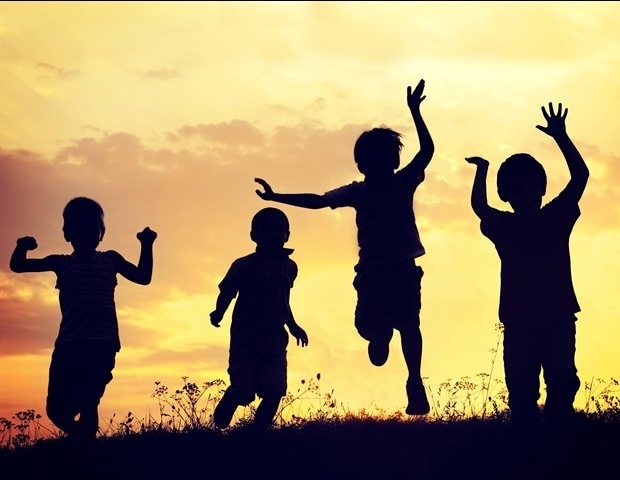The UN Conference on the Rights of the Youngster, the Norwegian Structure and Norway’s Youngster Welfare Act all states that youngsters have the correct to take part in all issues that concern them. Youngster welfare employees are additionally responsibility certain to work with youngsters and fogeys and help them as a lot as potential.
Nonetheless, analysis signifies that younger youngsters within the CWS should not have the chance to take part sufficient in their very own circumstances, and that the CWS doesn’t present passable preparations for the youngest youngsters to associate in selections for his or her lives.
Though baby welfare workers are conscious of the issue, information about instruments and strategies that exist for good communication and cooperation with the youngest youngsters are missing.
Because of this too many youngsters are excluded from their very own case selections, with out understanding the reasoning behind them.
Now a European improvement venture has been tasked with sharing experiences throughout nationwide borders and arising with options to allow the CWS to fulfill and embody the youngest youngsters in higher methods.
Participation is a proper
Norway’s Youngster Welfare Act states that every one youngsters who’re capable of type their very own views have the correct to take part in all issues regarding them. The kid shall obtain ample and tailored data and has the correct to freely categorical his or her views.
The requirement that youngsters should be listened to and that due weight should be given to their views in accordance with their age and improvement, is consistent with each Article 104 of the Norwegian Structure and Article 12 of the UN Conference on the Rights of the Youngster . Neither the constitutional provision nor the UN article operates with a set age restrict for the kid’s proper to take part.
Participation should be ensured in all phases of the processing and follow-up of the kid’s case, and the CWS should make sure that the kid’s participation takes place in a protected setting.
Regardless of these provisions, the out there analysis on youngsters’s participation suggests that there’s nonetheless a technique to go – particularly with regards to the youngest youngsters within the CWS.
The kid welfare service wants higher information about how interacting and speaking with younger youngsters can occur in a method that ensures their views are seen and heard.
The problem is similar in different international locations.
Want to speak in a different way
We will not anticipate a two-year-old or a five-year-old to take a seat down at a desk with an unfamiliar caseworker who pays a house go to. We have to discover child-friendly approaches. The accountable grownup has to speak with the kid in an comprehensible method.”
Inger Sofie Dahlø Husby, affiliate professor, NTNU’s Division of Social Work
“Play, physique language, drawing and different varieties of instruments – together with time – have to be used when speaking with younger youngsters. To ensure that youngsters to take part, the caseworkers and different adults must get to know the kid and make it straightforward for her or him to convey how they’re doing and what their wants are. This must occur in frameworks and settings that youngsters understand as protected,” says Randi Juul, an affiliate professor in the identical division.
Husby and Juul are each engaged on the Norwegian a part of the event venture PANDA, which has obtained funding by Erasmus+, the EU program for training, coaching, youth and sport.
The collaborative venture contains contributors from 4 European international locations and goals to search out options that may make sure that youngsters beneath the age of 12 are capable of take part of their CWS circumstances.
The Norwegian a part of the venture additionally includes Trondheim municipality and the kid welfare providers within the municipalities of Ålesund and Fjord. Additionally taking part is Forandringsfabrikken – The Change Manufacturing unit – which collects and disseminates information from youngsters and younger individuals on how they expertise the assist providers, with the aim of bettering the programs.
Studying from others
“This venture will allow us to search out instruments and approaches that make it simpler for the kid welfare providers to work together with youngsters,” says Husby.
She factors out that good examples for involving and dealing with younger youngsters may be present in kindergartens. Coaching social employees and others who meet the kids within the CWS is a crucial side of the venture.
The completely different international locations can even change their experiences by the venture. The Norwegian venture contributors have already introduced Trondheim municipality’s latest Stein, Saks, Papir (rock, paper, scissors) childrearing technique to the contributors from Belgium, Northern Eire and Spain.
The PANDA venture began within the autumn of 2020 and continues for 3 years.
sources:
The Norwegian College of Science and Expertise (NTNU)

